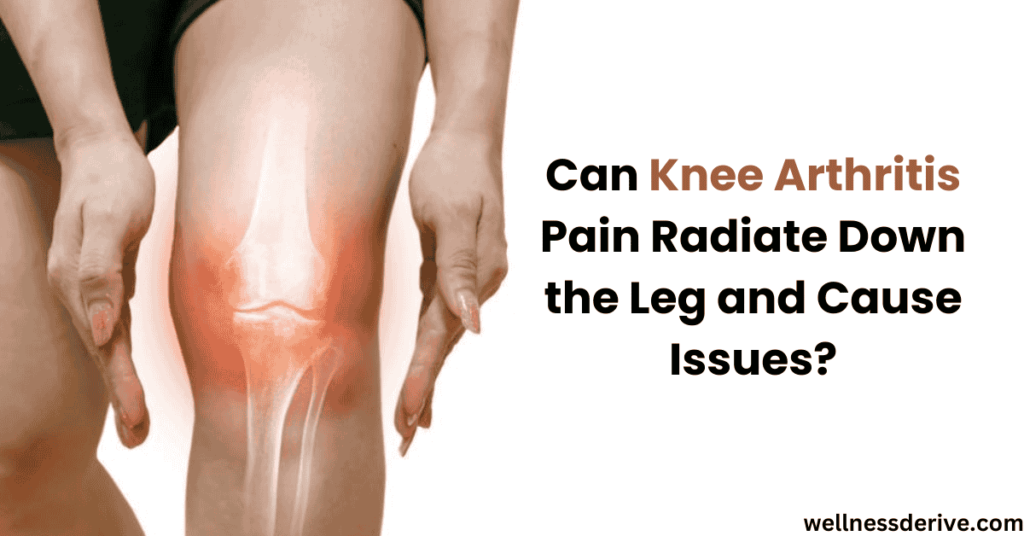Knee arthritis, particularly osteoarthritis, is a common condition that affects millions of people worldwide. While the primary symptom is localized knee pain, many people report discomfort that extends beyond the knee joint, raising the question: “Can knee arthritis pain radiate down the leg?” Yes, knee arthritis can cause radiating pain, affecting areas such as the thigh, shin, calf, and even the foot. Understanding this phenomenon is essential to managing the symptoms effectively.
Why Does Knee Arthritis Pain Radiate Down the Leg?
Radiating pain from knee arthritis occurs due to inflammation, nerve irritation, or mechanical stress in the knee joint. Here are the key reasons:
1. Nerve Involvement
- Inflammation in the knee joint can irritate surrounding nerves, causing pain to travel down the leg.
- Sciatic nerve irritation may lead to pain extending to the thigh or calf.
In addition to addressing the root causes of inflammation, using arthritis cream on affected areas may help reduce localized discomfort and alleviate some of the radiating pain. They provide temporary relief while more targeted treatments work to address the underlying causes. Regular use of such creams may also complement other pain management strategies, improving overall mobility and comfort.
2. Compensatory Muscle Strain
Altered gait or movement due to knee pain can strain the surrounding muscles, leading to referred pain in the lower leg or foot.
3. Inflammatory Spread
The inflammation in knee arthritis can cause swelling that affects the surrounding tissues, contributing to radiating pain.
4. Joint Misalignment
As knee arthritis progresses, joint misalignment can cause stress on nearby muscles, ligaments, and bones, resulting in pain that radiates to other parts of the leg.
Common Symptoms of Radiating Knee Arthritis Pain
Radiating pain from knee arthritis can present in various ways depending on the severity of the condition. Symptoms include:
- Pain in the Shin or Calf: Arthritis in the knee often leads to discomfort radiating down the shin and into the calf.
- Thigh Pain: In some cases, pain travels upward to the thigh, often due to referred pain from nerve involvement.
- Pain Extending to the Foot: Irritated nerves can cause sensations of pain or numbness in the foot.
- Cramping and Stiffness: Knee osteoarthritis may lead to leg cramps and a feeling of tightness in the lower leg.
- Shooting Pain: Some individuals experience sharp, shooting pain from the knee down to the ankle or foot.
Can Knee Arthritis Cause Specific Types of Leg Pain?
1. Calf Pain
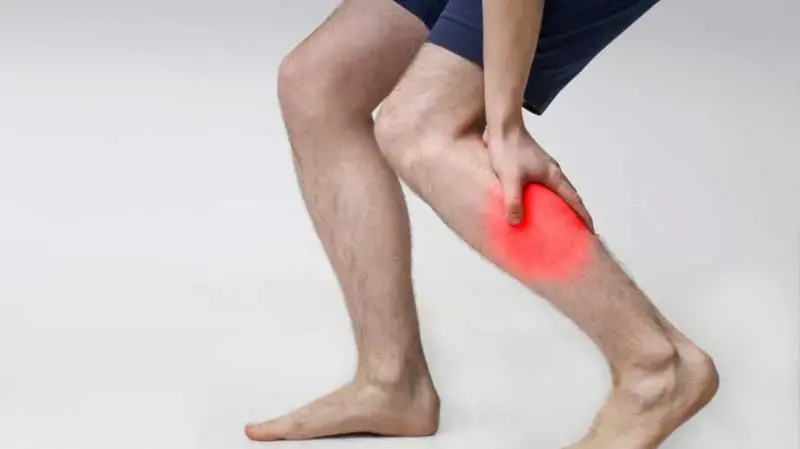
Can Knee Arthritis Cause Calf Pain? Yes, knee arthritis can lead to calf pain due to inflammation or muscle strain. This is often associated with altered walking patterns caused by knee discomfort.
2. Shin Pain
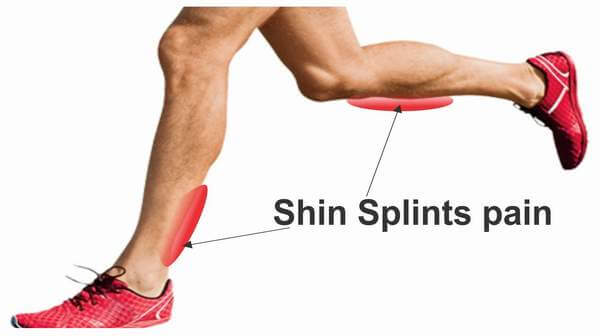
Can Knee Arthritis Cause Shin Pain? Arthritis can cause shin pain, particularly if inflammation affects the muscles or nerves surrounding the shinbone.
3. Thigh Pain
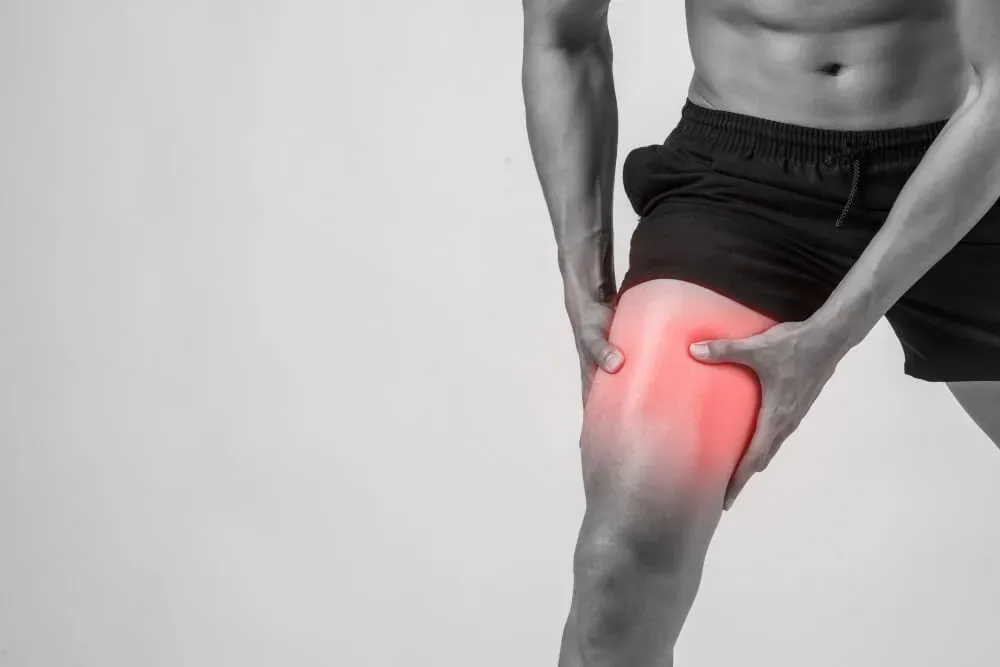
Does Knee Arthritis Cause Thigh Pain? Knee arthritis may result in pain radiating to the thigh due to nerve irritation or compensatory stress on thigh muscles.
4. Foot and Ankle Pain
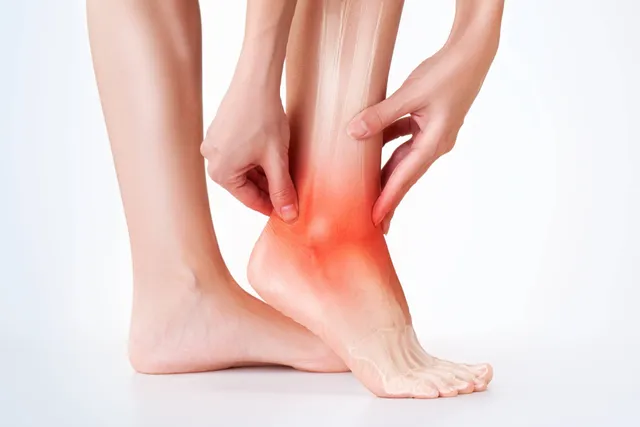
Can Knee Arthritis Pain Radiate Down to the Foot? Yes, nerve compression or irritation can lead to pain that extends to the foot and ankle.
How to Manage Knee Arthritis Pain Radiating Down the Leg
Radiating pain can significantly impact mobility and quality of life. Here are effective ways to manage it:
1. Medications

- Anti-Inflammatory Drugs: Over-the-counter NSAIDs like ibuprofen can reduce inflammation and alleviate pain.
- Topical Creams: Pain-relief creams or gels applied to the knee and surrounding areas can help manage symptoms.
2. Physical Therapy

- Stretching and strengthening exercises tailored for knee arthritis can improve joint function and reduce radiating pain.
- Techniques such as massage therapy can relieve muscle tension in the thigh, shin, or calf.
3. Lifestyle Modifications

- Weight Management: Maintaining a healthy weight reduces stress on the knee joint.
- Assistive Devices: Using braces, knee supports, or walking aids can improve stability and decrease pain.
4. Hot and Cold Therapy
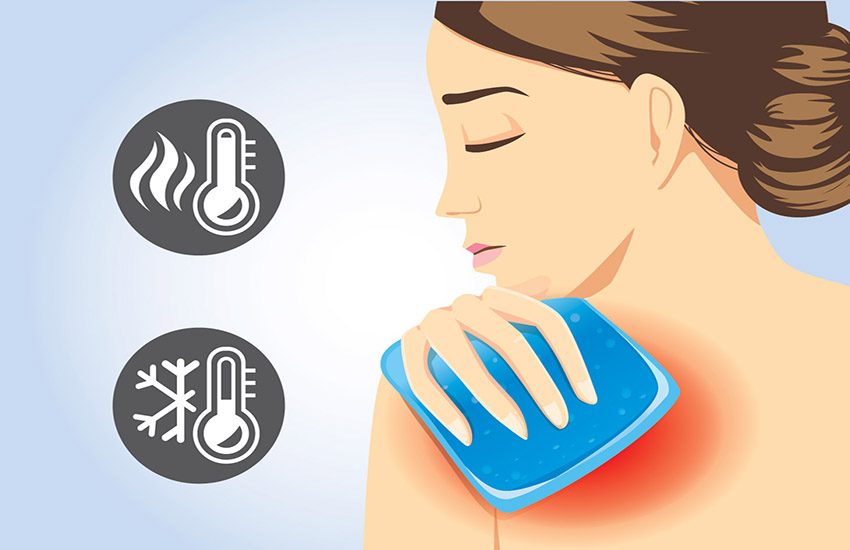
Applying a cold compress to the knee reduces inflammation, while heat therapy relaxes muscles and alleviates referred pain.
5. Alternative Therapies
Acupuncture and chiropractic care may help relieve pain associated with knee arthritis
6. Surgical Options
In severe cases of knee arthritis, procedures like knee replacement surgery may be recommended to address chronic pain and improve mobility.
Preventing Radiating Pain from Knee Arthritis
While it’s not always possible to prevent arthritis-related pain, these tips can help reduce the risk of radiating pain:
- Stay Active: Engage in low-impact exercises like swimming or cycling to strengthen the muscles around the knee.
- Protect Your Joints: Avoid activities that put excessive strain on the knees.
- Maintain a Balanced Diet: Foods rich in omega-3 fatty acids and antioxidants can reduce inflammation.
- Posture Awareness: Proper posture during daily activities helps distribute joint stress evenly.
When to See a Doctor
It’s important to consult a healthcare professional if:
- Radiating pain becomes severe or persistent.
- You experience numbness, tingling, or weakness in the leg.
- Pain interferes with daily activities or mobility.
- Over-the-counter treatments fail to provide relief.
FAQs About Knee Arthritis Pain and Radiating Symptoms
1. Does Arthritis Pain Radiate Down the Leg?
Yes, arthritis in the knee can cause pain to radiate to the thigh, shin, calf, or foot due to inflammation or nerve involvement.
2. Can Knee Pain Cause Leg Pain?
Yes, knee pain often extends to the leg because of compensatory movements or referred pain.
3. How Can I Stop Knee Pain from Radiating Down the Leg?
Managing knee arthritis with medications, physical therapy, and lifestyle changes can reduce radiating pain.
4. Can Knee Arthritis Cause Shin Pain?
Yes, knee arthritis may cause shin pain due to inflammation or muscle tension around the shinbone.
5. Is Radiating Pain a Sign of Severe Arthritis?
Radiating pain can indicate moderate to severe arthritis or complications like nerve involvement. A doctor’s evaluation is essential.
Conclusion
Knee arthritis can cause pain that radiates down the leg, affecting areas like the shin, calf, or thigh. This discomfort often stems from inflammation, nerve irritation, or muscle strain associated with arthritis. Managing radiating pain involves a combination of medications, physical therapy, and lifestyle changes, while preventive measures can help reduce its impact.
If knee pain that radiates down the leg persists or worsens, consult a healthcare provider for a tailored treatment plan. Taking proactive steps can improve mobility, reduce pain, and enhance your overall quality of life.
Disclaimer: The content on Wellness Derive is for informational purposes only and not a substitute for professional medical advice, diagnosis, or treatment. Always consult a healthcare provider for medical concerns.

